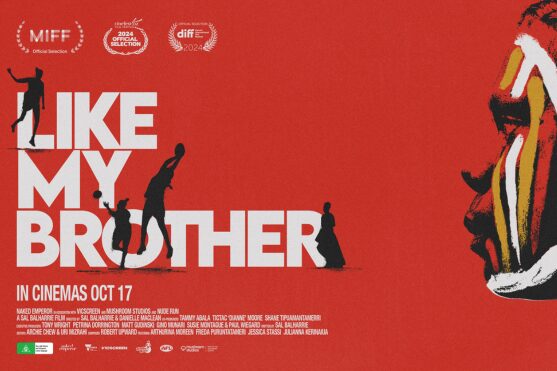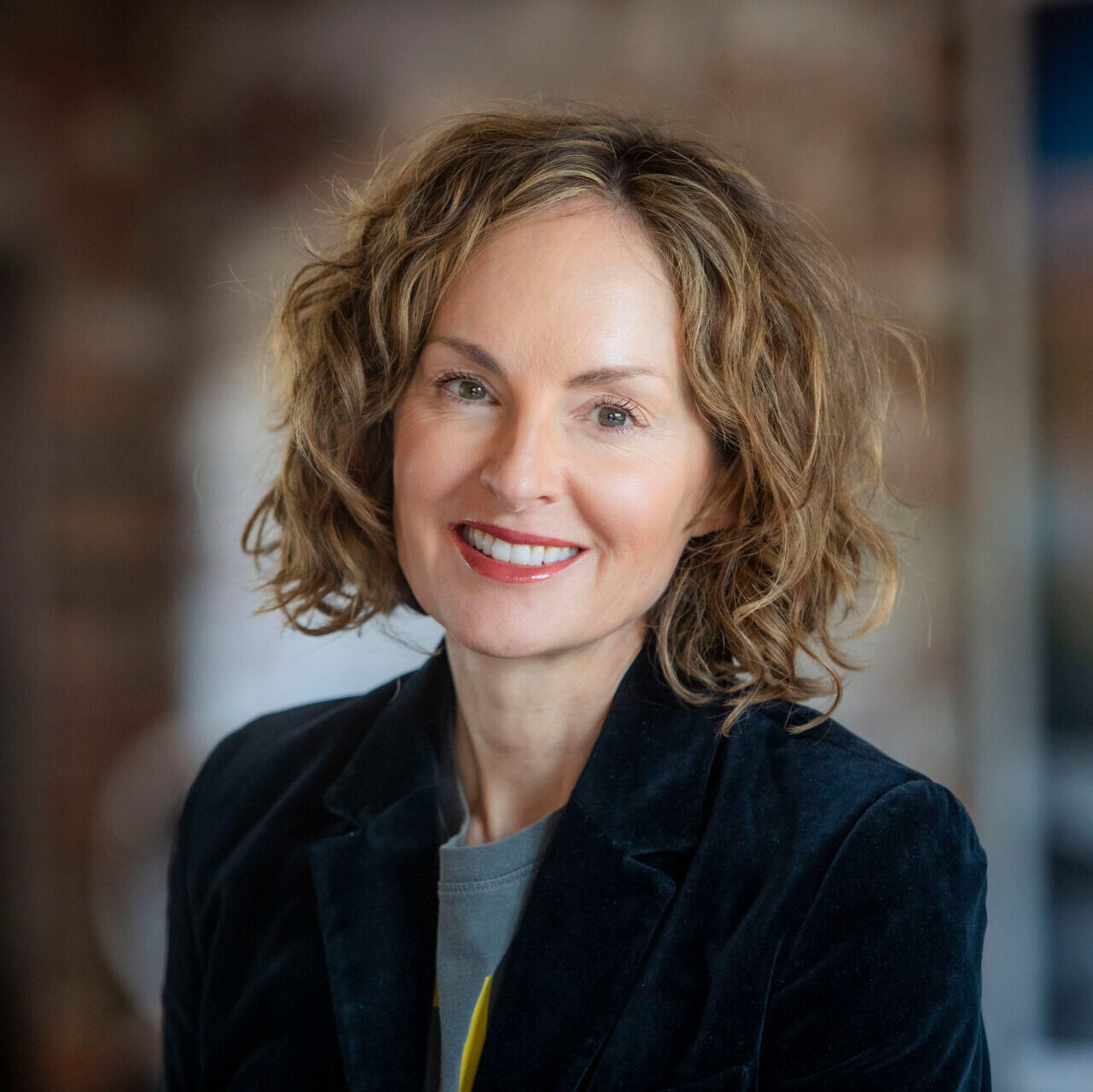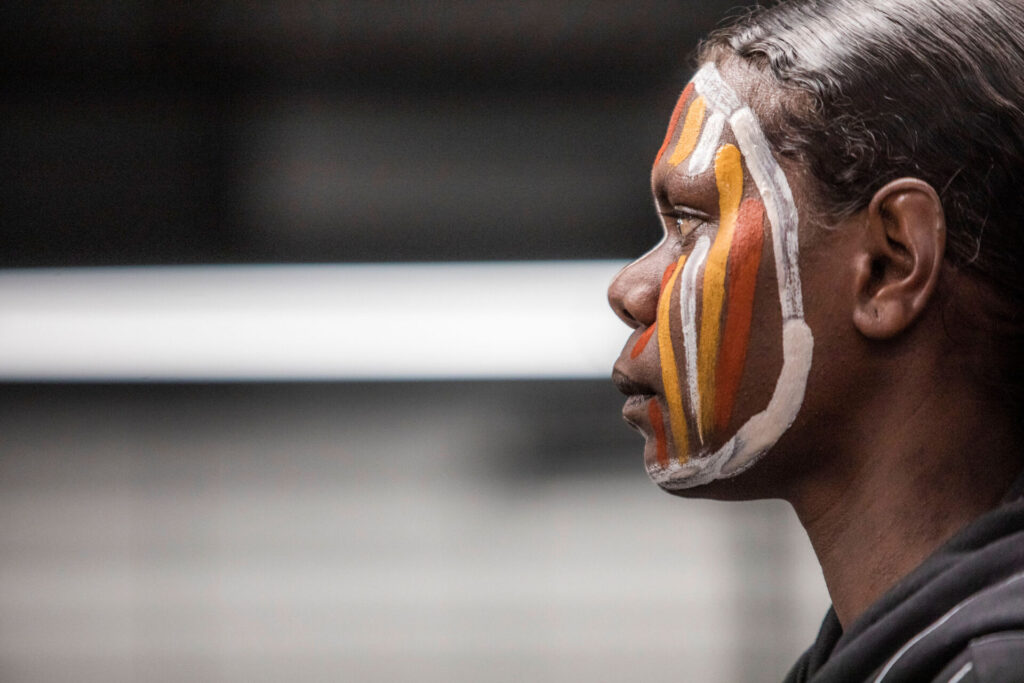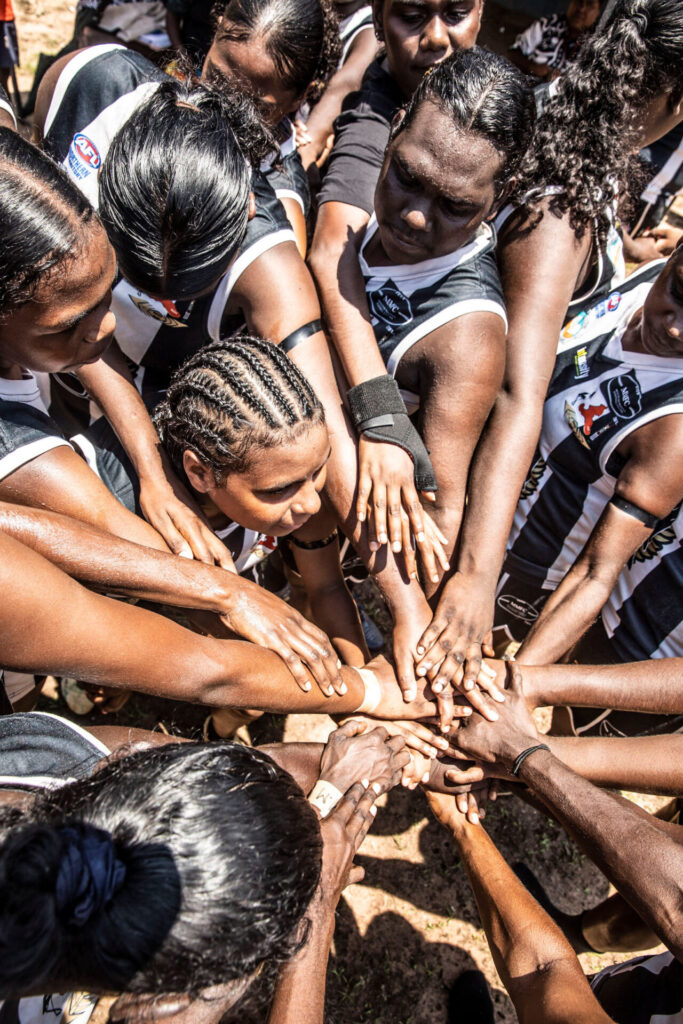Like My Brother: The film that became a story of ‘reconciliation in action’

Co-director Sal Balharrie thought it would take 18 months to get her latest documentary Like My Brother ‘done and dusted’. The film, about female footballers from the remote Tiwi Islands following their AFLW dreams, ultimately took six years, with many lessons learned. It was nearly derailed by COVID, but it was actually the time needed to build relationships with First Nations communities that set the pace. The making of this inspiring film, released in cinemas 17 October, was philanthropically backed by 76 donors.
“We could only progress at the pace that it took to build trust,” said Sal. “And what that means is that you need to spend a lot of time in the community. I became known as that ‘white woman who keeps coming back’.

“The football was the easy part of this story to tell. What is much more challenging is when you want to get inside a culture, inside a family and inside people’s lives.”
The film tells the story of four exceptionally talented young women from the islands 100km north of Darwin – Arthurina ‘Rina’ Moreen, Julianna Kerinaiua, Freda Puruntatameri and Jess Stassi – who sign with a Melbourne football club after being spotted by a talent scout. They overcome numerous hurdles in leaving their families and communities to move south and navigate an elite training regime.
Sports documentaries are Sal’s wheelhouse as a big sports fan whose father was a footballer and coach. But it became the medium to explore deeper themes with her co-director Danielle MacLean. “This is ultimately a story about who has the right to dream in contemporary Australia,” she said. “My guiding question as a storyteller was in Australia, we think cream rises to the top and it doesn’t.”
Sal turned to philanthropy to support the film, with assistance from Documentary Australia. “We were funded by foundations, such as Bright Moon Trust, Delroads Trust, Shark Island Institute, the Dyson Bequest, Australian Communities Foundation and Australians Investing in Women, along with private donors. There were 76 donors in total who provided $450k of the $1.2m budget with only 10 donating over $10k.
“Those philanthropists who understand the concept of a return on social investment, not just a return on capital – this model is more prevalent in filmmaking. Perhaps it’s becoming a way for philanthropists to publicly express their values,” said Sal.
Part of the social return involves an educational component developed with Cool.org with a teaching unit called Dare to Dream. The content aligns with the Year 9 -10 Australian English curriculum and includes lesson plans going out to 175,000 teachers across Australia. The film is launching with three units but is looking for funders to back an additional seven.
The football talent of the girls was so extraordinary that Sal said there was every likelihood they would have made it into the draft but that prospect fell off the table when COVID hit. The girls returned to the islands and three became mums. It was a crunch point and Sal considered abandoning the project. “But how could I leave these incredible people who had allowed me into their world?”
Sal realised though that a white creative team was not the way forward and engaged with friend and colleague, Luritja and Warumungu filmmaker, Danielle MacLean as co-director and encouraged partners from the Tiwi community, Tammy Abala, TicTac Moore and Shane Tipuamantamerri,to come on board as co-producers. Tammy, Shane and Ticky now own 40% of the film. Their involvement opened doors in regards to grandmothers and elders playing significant roles and in a nutshell, bringing authentic Tiwi culture to the film. From here, the magic unfolded in a different story direction.
“You have to hold your nerve as observational documentary maker when the story takes unexpected turns and have the support and patience of funders who understand that, which we did thankfully.”
For example, the ending of the film wasn’t even clear until six weeks before they delivered the project.

The film opens in 100 cinemas across Australia on 17 October and has so far had a “dream festival run”, kicking off with a special update to mob at Garma, then the world premiere at the Melbourne International Film Festival, CinefestOz in WA, the Darwin Film Festival, Mparntwe Alice Springs International Film Festival ·and SXSW Sydney. When Tammy introduced Like My Brother at Garma, Sal said she described it as “reconciliation in action, both in front of and behind the camera”.
“The film has been an incredible journey of upskilling Tiwi co-producers as filmmakers but also in my own personal understanding of culture,” said Sal. “The story is about being able to walk in two worlds proudly for these girls, but really that’s for us to learn too.
“There’s no sign that says ‘white fellas don’t enter’, but there is a sense that white fellas usually enter with a degree of stupidity about culture. So that’s the learning, that’s the time, that’s the reading, research and level of respect that needs to take place so that I can walk proudly in two worlds when I visit the Tiwi.”
The film is clearly an invitation for other white fellas to take on that journey. “I’m only interested in stories that open minds up,” said Sal.
“What I hope people take away is a perspective on the huge depth of living culture depicted in the girls’ lives. And of the incredible depth of family. That’s something that white culture has lost to our detriment.”

The film sits in a similar space to Trailblazers – a Stan Originals documentary also supported by Documentary Australia that tells the story of the fight for equality by Australia’s female footballers. It also has an educational component for schools.
Dr Mitzi Goldman, CEO of Documentary Australia, said: “We worked closely over the past few years with the team who made Like My Brother throughout their journey – one that was complicated and challenging in so many ways and we’re so proud of the result. It’s a testament to Sal Balharrie and the whole team’s resilience and determination.
“The film’s impact campaign led by Documentary Australia is driving action to #BlazeATrail for gender equality and leadership and to support increased investment and opportunities for women and girls in sports.
“We can’t be what we can’t see. These films are excellent examples of the work of Documentary Australia to support storytelling as a tool for achieving systems change. We encourage impact campaigns to be embedded early in the development of new documentaries and help measure the impact and outcomes. Philanthropists with a focus on evaluating the impact of their support enjoy this rigour,” she said.
Sal hopes the film helps to open up more co-designed pathways for First Nations girls to follow their dreams in sports. She said that the trajectory of the girls’ lives shows the effects of having had exposure to new opportunities. “I’m a big believer that a brain expanded never goes back to the same dimensions. There’s no coincidence that these four girls are all employed in a community where there are very few employment options.”
“The girls are all still playing football in their community. They are mums, they are working, they are coaching local teams,” said Sal.
“The flipside is that we all have an opportunity to rethink what our concept of success is, and that success can be found in many ways.”
Like My Brother opens in cinemas on 17 October. Watch the trailer below.